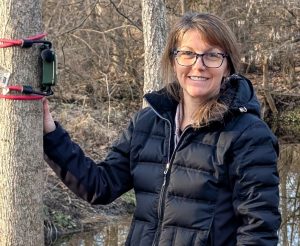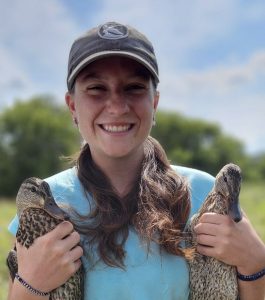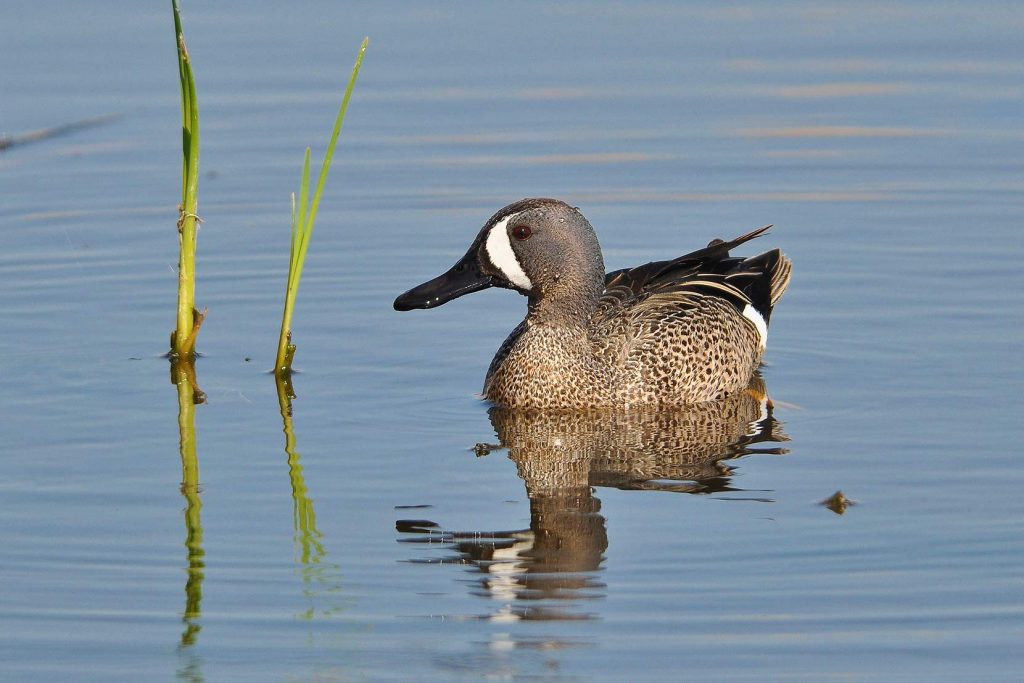This fellowship was established to honour the long-term and large-scale avian science contributions of Dr. David R. Luukkonen, who we lost in 2021. Initial funding for this fellowship is generously being provided by the Upper Mississippi/Great Lakes Joint Venture. Subsequent funding will be provided via an endowment established in Dave’s name through the generous contributions of organizations and family, friends, and colleagues of Dave.

One of the two winners of this fellowship is Rachel Mansfield, a PhD student at Wright State University. Rachel’s research will investigate the accuracy, efficacy, and cost effectiveness of Autonomous Recording Units (ARUs) compared to human observers when detecting secretive marsh birds in wetlands.
Wetland loss across North America has resulted in an alarming decline of many wetland birds. Secretive marsh birds, named for their cryptic behavior, are difficult to observe and count, so population trends and habitat associations are poorly understood. Using ARUs can potentially expand the sampling for this vulnerable group by monitoring many sites remotely and over long periods of time. Rachel will deploy ARUs in wetlands in northern Ohio and integrate their data with human-conducted point counts to:
- Estimate the relative abundance of secretive marsh birds
- Evaluate secretive marsh bird habitat associations
Rachel’s project will provide monitoring recommendations for secretive marsh birds to enhance the power and precision of detecting long-term population trends and improve conservation planning.

One of the two winners of this fellowship is Kelsie Huss, a MSc student at the University of Saskatchewan. Kelsie’s research will examine how tracking devices influence movements, behaviour, survival, and reproductive success in dabbling ducks.
The development of miniaturized tracking technologies has enabled new insights into animal movement and behavior. However, tracking devices may have a significant negative impact on birds, and influence the very behaviours that we are trying to study. Kelsie will evaluate how four different transmitter attachment techniques influence the movement, behaviour, survival, and reproductive success of mallards. Her research will help contextualize past research and allow researchers to design better future studies using transmitters.
About the Fellowship
Support from this Fellowship is dedicated to addressing Upper Mississippi/Great Lakes Joint Venture (JV) waterfowl, waterbird, wetland, and relevant social science evaluation priorities (see https://umgljv.org/science/). Graduate students located at any North American university are eligible for this Fellowship. It is awarded based on:
- The qualifications of the applicant
- The scientific soundness of the student’s research proposal
- Originality and creativity in study design
- Expected contributions of the study to waterfowl / wetland bird conservation and management in the JV region
- The achievability of the work
For the first three years, two awards of up to $10,000 USD/year are available to provide personal or research support for successful applicants. Each award is renewable for up to two additional years for PhD students, one additional year for students pursuing a Master’s degree, assuming annual approval of a satisfactory progress report and the need for continuing financial support.
Past Winners of the David R. Luukkonen Waterfowl and Wetland Graduate Student Fellowship
2024: Amanda Griswold, M.Sc. Assessing waterfowl production at local scales using uncrewed arial system distance sampling methods, University of Wisconsin – Stevens Point



